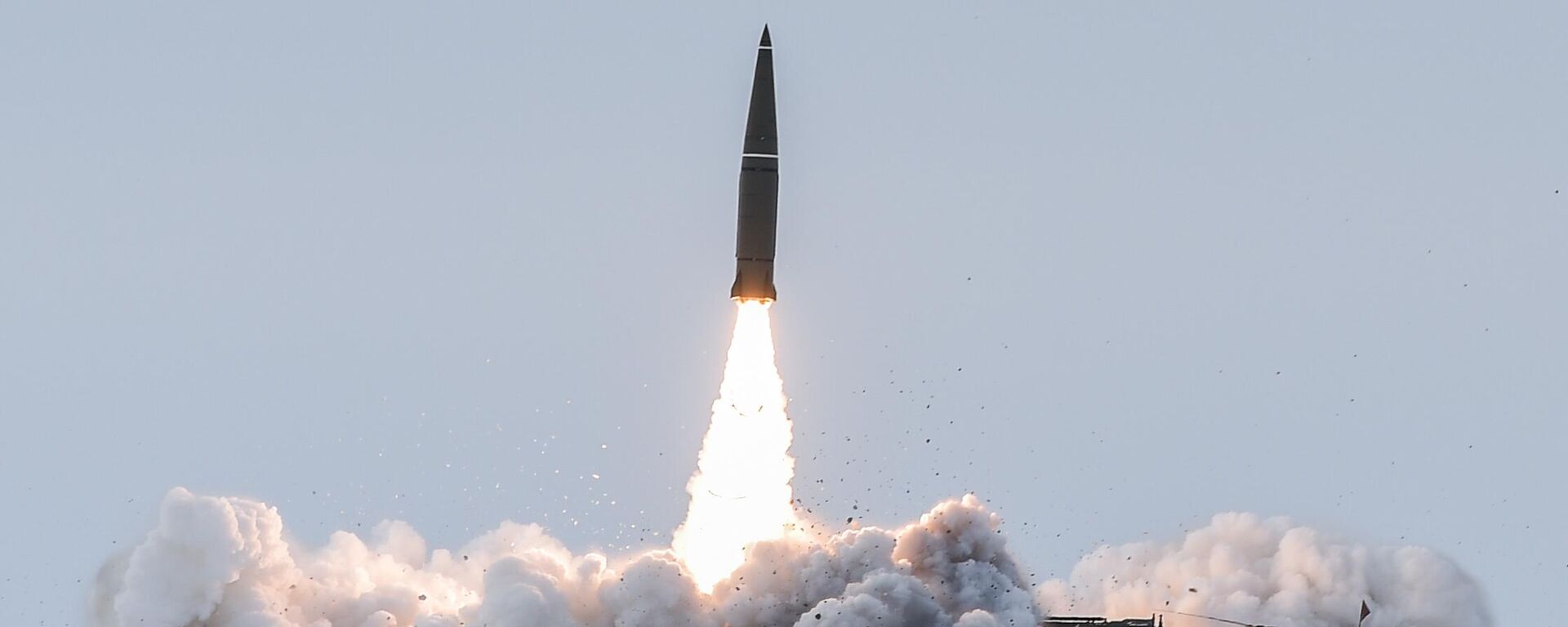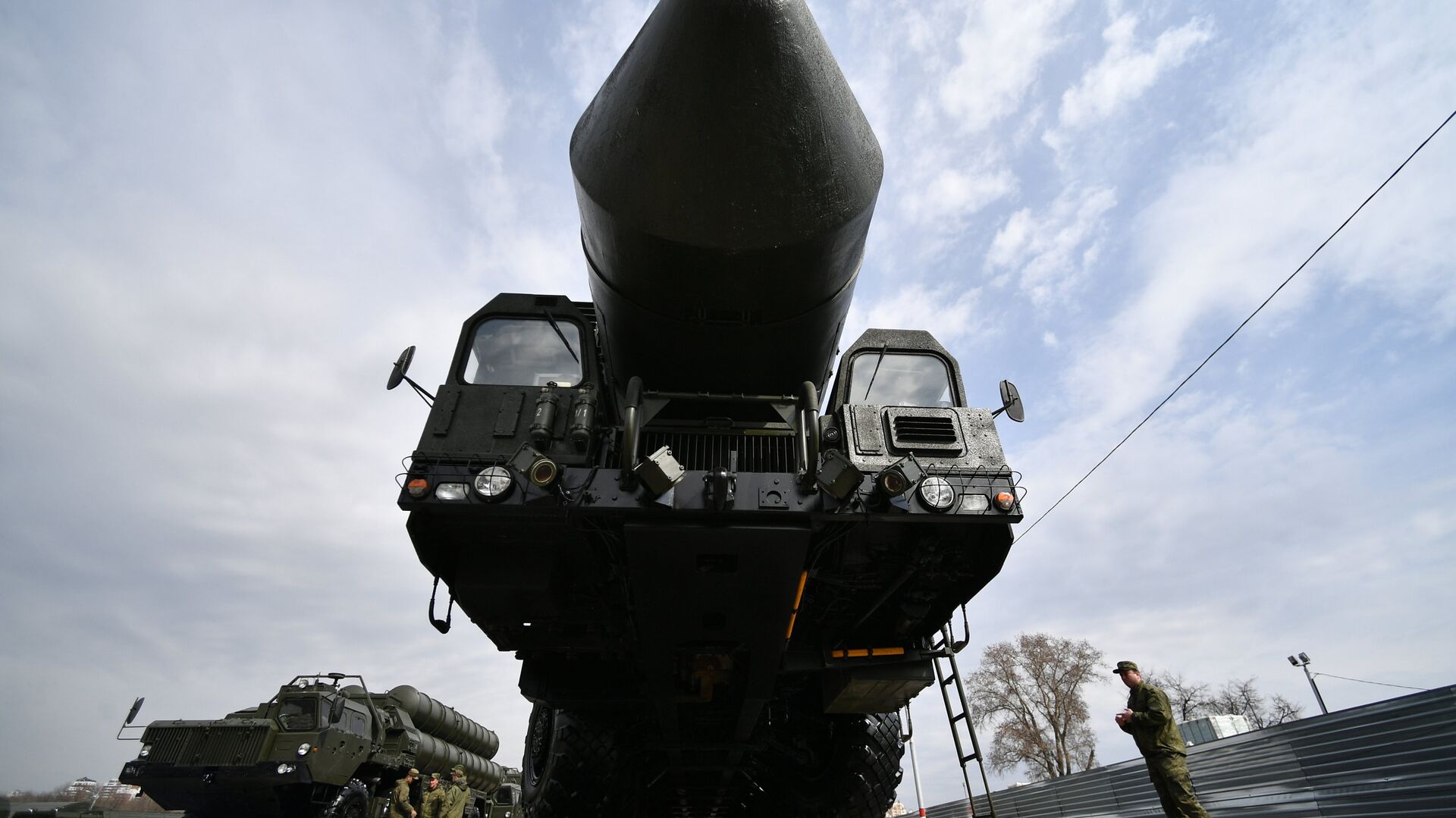https://sputnikglobe.com/20241119/nuclear-doctrine-changes-signal-russias-willingness-to-take-on-global-power-obligations---expert-1120928505.html
Russia’s Amended Nuclear Doctrine Signals Willingness to Take On 'Global Power Obligations' - Expert
Russia’s Amended Nuclear Doctrine Signals Willingness to Take On 'Global Power Obligations' - Expert
Sputnik International
The latest changes to Russia’s nuclear doctrine were likely made for two main reasons, Mikael Valtersson, former Swedish military officer and ex-chief of staff with the Sweden Democrats, tells Sputnik.
2024-11-19T13:18+0000
2024-11-19T13:18+0000
2024-11-19T14:11+0000
analysis
military & intelligence
russia
nuclear weapons
nuclear doctrine
https://cdn1.img.sputnikglobe.com/img/105754/73/1057547330_0:151:3103:1896_1920x0_80_0_0_cd7a8df2e6fec1f4b742cbe007c4f18f.jpg
“One is to make it even clearer that even attacks from Ukraine with conventional weapons with the active support of Western powers will be seen as a combined attack on Russia,” he says. “This will give Russia the opportunity to claim Casus belli [an event that either provokes or is used to justify a war], and legitimate defensive military action according to international law and the UN Charter.”This move, Valtersson argues, is essentially an attempt by Russia to “strengthen deterrence towards the West and reduce the risk of Western escalation in Ukraine.”“The second and very interesting aspect is the inclusion of allies in the nuclear deterrence,” he continues. “This must be seen in the light of the recent ratification of the new defense cooperation agreement with the DPRK (North Korea) that includes a paragraph akin to the NATO article 5. This stipulates mutual military aid to defend each other in case of aggression from other countries.”As Russia’s actions resulted in NATO ceasing to be the only military bloc in the post-Cold War world whose members “have been included in a common nuclear umbrella,” Valtersson suggests that this development has both pros and cons for Moscow.Valtersson also remarks that it would be interesting to see what new defense agreements Russia might sign with nations such as Iran, Syria, Cuba, Venezuela, Algeria “and a multitude of Sub-Saharan states,” which could both “greatly increase the security of these states and Russian standing in the world” and, “increase the risk of Russian involvement in new conflicts.”“To summarise, this is a clear signal that Russia now is willing to take on the obligations that are needed to be a real global power,” he adds.
https://sputnikglobe.com/20241119/amendments-to-russian-nuclear-doctrine-intended-to-adapt-it-to-modern-realities---kremlin-1120926327.html
russia
Sputnik International
feedback@sputniknews.com
+74956456601
MIA „Rossiya Segodnya“
2024
Sputnik International
feedback@sputniknews.com
+74956456601
MIA „Rossiya Segodnya“
News
en_EN
Sputnik International
feedback@sputniknews.com
+74956456601
MIA „Rossiya Segodnya“
Sputnik International
feedback@sputniknews.com
+74956456601
MIA „Rossiya Segodnya“
russia nuclear doctrine, russia nuclear weapons, russia nuclear umbrella
russia nuclear doctrine, russia nuclear weapons, russia nuclear umbrella
Russia’s Amended Nuclear Doctrine Signals Willingness to Take On 'Global Power Obligations' - Expert
13:18 GMT 19.11.2024 (Updated: 14:11 GMT 19.11.2024) The latest changes to Russia’s nuclear doctrine were likely made for two main reasons, Mikael Valtersson, former Swedish military officer and ex-chief of staff with the Sweden Democrats, tells Sputnik.
“One is to make it even clearer that even attacks from Ukraine with conventional weapons with the active support of Western powers will be seen as a combined attack on Russia,” he says. “This will give Russia the opportunity to claim Casus belli [an event that either provokes or is used to justify a war], and legitimate defensive military action according to international law and the UN Charter.”
This move, Valtersson argues, is essentially an attempt by Russia to “strengthen deterrence towards the West and reduce the risk of Western escalation in Ukraine.”
“The second and very interesting aspect is the inclusion of allies in the nuclear deterrence,” he continues. “This must be seen in the light of the recent ratification of the new defense cooperation agreement with the DPRK (North Korea) that includes a paragraph akin to the NATO article 5. This stipulates mutual military aid to defend each other in case of aggression from other countries.”
"With the changes of Russian nuclear strategy, Russia says that aggression towards it's allies will be seen as aggression towards Russia and might include a nuclear response," Valtersson notes. "The Russian nuclear doctrine now reflects the fact that Russia has formal allies again.”
As Russia’s actions resulted in NATO ceasing to be the only military bloc in the post-Cold War world whose members “have been included in a common nuclear umbrella,” Valtersson suggests that this development has both pros and cons for Moscow.
“This makes Russia a more attractive ally, but also puts Russia into a more precarious situation, since it now has stronger obligations to live up to. A failure to live up to these obligations would result in a huge loss of confidence in Russian willingness to support allies, and the Kremlin of course knows this,” he elaborates. “That means that this decision to change the nuclear doctrine must be seen as a real willingness of Russia to extend its nuclear deterrence to other allies.”
Valtersson also remarks that it would be interesting to see what new defense agreements Russia might sign with nations such as Iran, Syria, Cuba, Venezuela, Algeria “and a multitude of Sub-Saharan states,” which could both “greatly increase the security of these states and Russian standing in the world” and, “increase the risk of Russian involvement in new conflicts.”

19 November 2024, 11:08 GMT
“To summarise, this is a clear signal that Russia now is willing to take on the obligations that are needed to be a real global power,” he adds.



